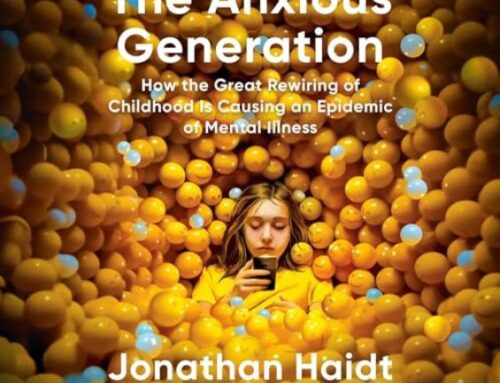 Culture matters. I would carve these words on stone slabs and hand deliver them to every conservative and pro-life organization in the English-speaking world if I thought that it would make a difference, but I’m no longer sure it will. We may, I fear, have absented ourselves from culture and the arts for so long that everything we do now is a rear guard action, fought on the outskirts of the cultural mainstream.
Culture matters. I would carve these words on stone slabs and hand deliver them to every conservative and pro-life organization in the English-speaking world if I thought that it would make a difference, but I’m no longer sure it will. We may, I fear, have absented ourselves from culture and the arts for so long that everything we do now is a rear guard action, fought on the outskirts of the cultural mainstream.
Most readers will be aware that Bill 13 was recently passed through the legislature of the province of Ontario. Ostensibly a piece of legislation meant to discourage bullying in schools, it was recognized early on as a Trojan horse meant to target Catholic schools in particular, by making mandatory the establishment of Gay-Straight Alliances in schools, propping up “human rights” activism just when public sentiment seems strongest against the ill-worded yet aggressively enforced excesses of this uniquely Canadian strain of social engineering.
The battle against Bill 13 was really lost years ago, when the province’s archdiocese gave up oversight of Catholic education for public support of the system on par with the public schools. From that point on, any Catholic protests against government interference with Catholic education could be dismissed with some variation of “he who pays the piper calls the tune,” an argument that conservatives themselves have used to dismiss liberal quibbling against legal precedent.
(Never mind that Catholics voluntarily pay into their school system, making them the one really paying the piper; Ontario’s Liberal government gambled that Bill 13’s opponents would never find the unity to make this argument, and they were right. In any case, it’s another example of the logical pitfalls of employing overused metaphors.)
Personally, I knew that the battle against Bill 13 was lost when the imminent release of Bully, director Lee Hirsch’s documentary about bullying in U.S. middle and high schools, began its attention-getting pre-release publicity campaign. The film might have hit the theatres more quietly if it hadn’t been hit with an R rating in the United States, allowing Hirsch and publicity-loving producer Harvey Weinstein to take the moral high ground and protest that the rating would effectively prevent the film from being seen by the people it was supposed to help: school-age kids.
Media on both sides of the border dutifully printed weeks worth of stories, and for awhile, this low-budget documentary was getting almost as much publicity as a big-budget studio summer release like The Avengers. Peter Howell of the Toronto Star called it “a valuable document for exposing the toll that bullying takes, and for sparking discussion of a problem that is far too often swept under the rug,” while the Globe & Mail’s Rick Groen summed up the more measured reaction, felt by many upon finally seeing the subject of so much heated attention, by calling it “a documentary that tackles this headline-heavy topic by mixing moments of raw emotional power with intervals of somewhat suspect manipulation.”
Running up to the debate on Bill 13, all the publicity had the invaluable effect of making bullying a hot topic, and an issue for which, we were assured, a solution was at hand, with the added bonus of making Canadians seem more enlightened than their American neighbours, always a selling point in this country. Opposing the bill would be like supporting bullying, and with Hirsch’s film documenting two suicides among its cast of young victims, the moral high ground could be rented cheap. Ontario’s government must have wondered why they couldn’t get this sort of publicity ahead of past failures like ORNGE or eHealth.
Never mind that Hirsch’s film, despite all the publicity, did poor business at the box office, or that controversies about manipulation of facts about the film’s young bullying victims lingered long after its release. Watching the film, I couldn’t help but be struck by how the one gay bullying victim in the film, a young girl living in Oklahoma, seemed so much more dignified and philosophical about her ordeal. While the publicity was a gift to Bill 13, the film itself made a much stronger argument against concentrating resources aimed on gay kids only, when bullying could affect anyone, anywhere, who simply suffered from being awkward or conspicuous in the social maelstrom of warehouse-like public schools.
But no one saw the film as much as they saw a word – bullying – and heard a government saying that they had a solution. (I remain continually amazed that anyone still prefers a government solution to any problem, but I’m in a minority on this subject, at least in this country.) And without anyone to make the case – never mind a feature documentary – that it wasn’t bullying but freedom of belief and religious independence that would be the more likely victim of Bill 13, we once again got to experience the humbling sensation of arguing from a point very far away from the debate.




